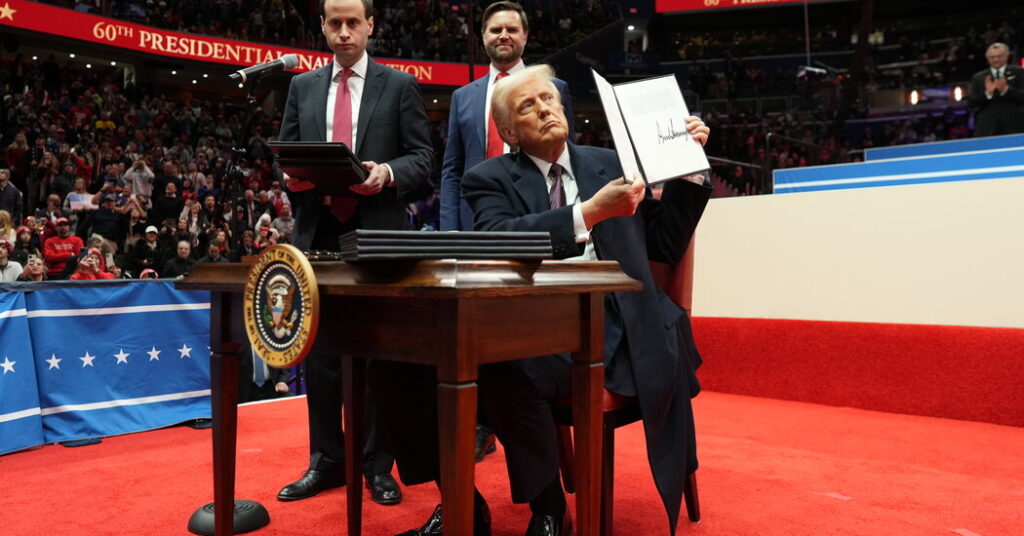The plaintiffs in the suit filed in Massachusetts included New Jersey, Massachusetts, California, New York, Connecticut, Rhode Island, Michigan, Colorado, Delaware, Nevada, Hawaii, Maryland, Maine, Minnesota, New Mexico, Vermont, Wisconsin and North Carolina. Additional suits were filed by a group led by the American Civil Liberties Union in New Hampshire, and another by Lawyers for Civil Rights.
The order on birthright citizenship does not take effect for 30 days, unlike Mr. Trump’s first-term attempt to ban travel to the United States from several Muslim-majority countries, which led to airport chaos. The timing means that executive-branch agencies can work through how to implement the order while the courts decide on its legality.
Mr. Brown, the Washington state attorney general, said his team continues to review Mr. Trump’s executive orders and expects the state will be involved in more litigation in the future. But, he added, the state is not going to sue over objectionable-but-legal moves by the Trump administration, such as pardoning most of those charged for the Jan. 6, 2021, attack on the U.S. Capitol.
“I have no interest in continuing to sue the president of the United States, whether it’s Donald Trump or whoever the next president is, but it is my oath to defend the Constitution,” Mr. Brown said.
Mr. Trump’s birthright citizenship order, he added, was “plainly illegal.”
Tracey Tully and Luis Ferré-Sadurní contributed reporting from New York.


